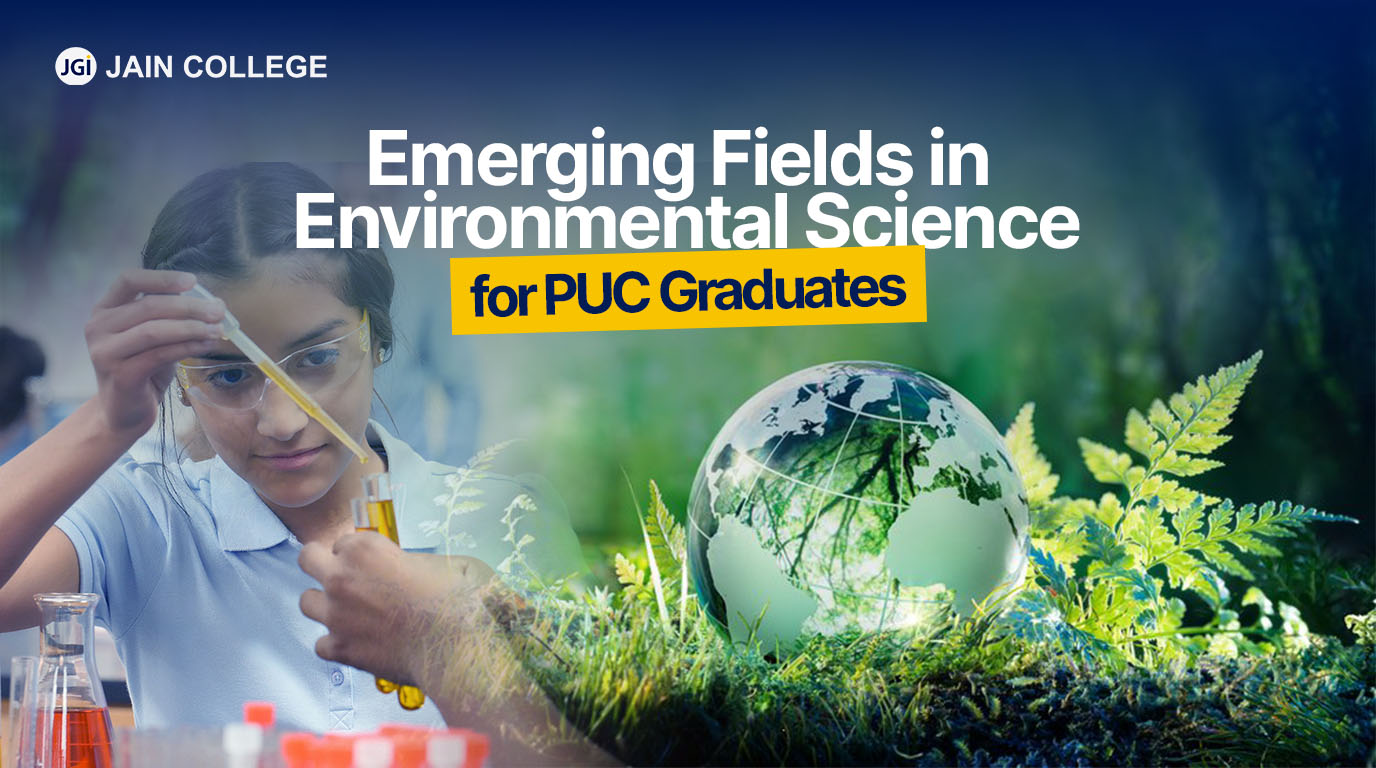
Environmental Science is an ever-evolving field crucial in addressing global challenges such as climate change, pollution, biodiversity loss, and resource depletion.
With technological advancements and increased sustainability awareness, new interdisciplinary fields are emerging, offering exciting career opportunities for students and graduates.
Understanding these domains can help aspiring environmental professionals contribute to a greener, more sustainable future while exploring dynamic career paths.
In this article, let us explore some of the emerging fields in Environmental Science for PUC & Graduates.
Table Of Contents:
Environmental Science is an interdisciplinary field that studies human interactions with the environment. It combines Biology, Chemistry, Physics, Geology, and Social Sciences to address climate change, pollution, conservation, and sustainable development.
Environmental Science aims to find solutions that protect ecosystems, promote sustainability, and ensure a healthy planet for future generations.
Environmental Science is an ever-changing domain with emerging research topics and career paths arising from climate change, pollution, biodiversity decline, and the demand for sustainable development.
With growing environmental challenges such as global warming, biodiversity loss, and resource depletion, Environmental Science has become a crucial field.
Here are some reasons why individuals should consider a career in this domain:
Students interested in Environmental Science can opt for various undergraduate programmes, including:
For further specialisation, students can pursue a master's degree in Environmental Science:
The field of Environmental Science is evolving with new areas of study and career opportunities, such as:
As environmental concerns continue to grow, professionals in these fields will play a crucial role in shaping a sustainable future.
As environmental concerns continue to grow, the demand for experts in emerging fields like Climate science, Sustainable energy, Environmental biotechnology, and Geoinformatics is rising.
By pursuing specialised education and gaining relevant skills, students and graduates can build impactful careers that contribute to solving some of the world's most pressing environmental issues. The future of ecological science is bright, and those who invest in these fields today will be at the forefront of shaping a more sustainable tomorrow.
Join JAIN PU College for top-notch Science, Commerce, and Arts programmes. Secure your path to success today!
Several emerging fields are gaining importance due to global environmental challenges:
Career options vary depending on specialisation, but some typical roles include Conservation Biologist, Climate Change Analyst, Environmental Scientist, Environmental Engineer, GIS and remote Sensing Specialist, Sustainability Consultant, Renewable Energy Expert, and more.
After completing PUC, pursuing the following degree programmes or courses can lead to careers in environmental science:
Some specialisation courses in Environmental Science include M.Sc. in Environmental Science, M.Tech in Environmental Science, and Postgraduate courses in Climate Science, Sustainability, or Conservation Biology. These courses are pursued after the completion of undergraduate courses in Environmental Science.
Some vital skills required for a career in Environmental Science include Communication Skills, Technical Skills, Fieldwork Experience, Analytical and Research Skills, Problem-Solving and Critical Thinking, and more.
Environmental professionals are in demand in various industries, such as:
To stay updated on trends in environmental science:

JAIN PU College, a part of the renowned JGI Group, is committed to empowering students with quality education.
Beyond academics, the college ensures its online content reflects the same standard of excellence. Every blog and article is meticulously vetted and proofread by subject matter experts to ensure accuracy, relevance, and clarity. From insightful educational topics to engaging discussions, JAIN PU College's content is crafted to inform, inspire, and add value to its readers, reflecting the institution's commitment to intellectual growth and innovation.
View all Blogs